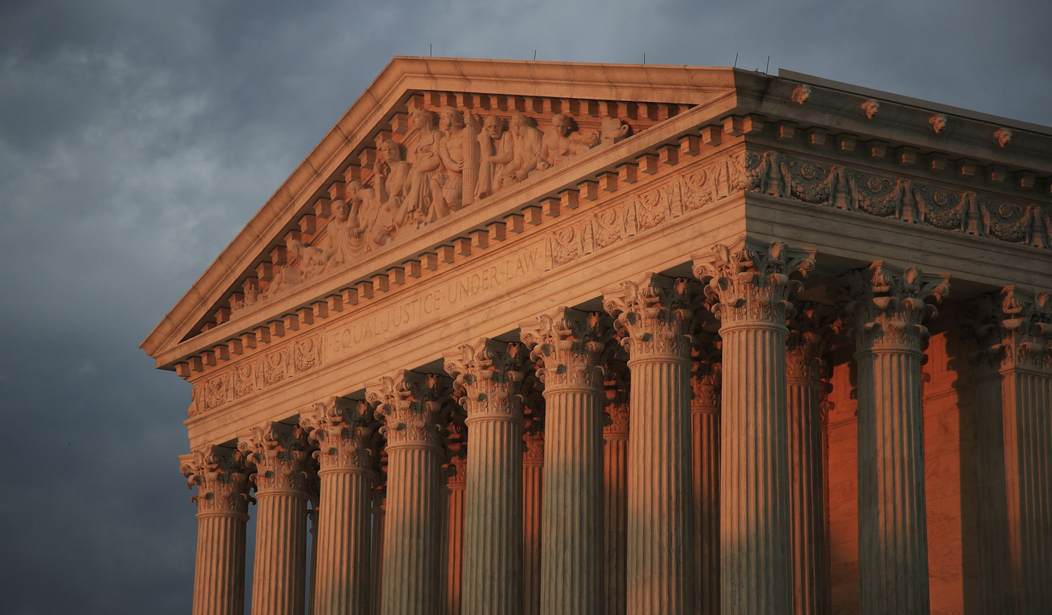One of Trump critics' most common indictments against the president is that he's taking a blowtorch to treasured political norms, and actively undermining faith in vital American institutions. Too often, they're right. The current occupant of the Oval Office regularly embraces a facts-second, ends-driven brand of politics that is corrosive and demagogic. There seems to be no person, entity, or values he's unwilling attack or deride in order to gain what he perceives as a personal or political advantage, no matter how fleeting. Many on the Left, and some on the Right, have therefore cast themselves as jealous guardians of longstanding norms and institutions in the age of Trump. There is honor and merit in this impulse. But in response to Trump's real and alleged perniciousness, large elements of his opposition have proven themselves, ironically and frighteningly, quite eager to embark upon their own project of shattering norms and destroying institutions. Having lost electorally, they want to change the rules.
Let's begin with the astonishing fact that multiple Democratic presidential candidates are now openly indulging various Supreme Court-packing schemes. None have outright endorsed any specific plan, though some have been more specific than others. The growing trend is to assure outraged and short-sighted progressives that they're committed to "having a conversation about" or "looking at" the banana republic-style power grab, as a means of compensating for ideological setbacks under the firmly established system. Even if these panderers don't truly believe such a radical move is prudent of feasible, they're normalizing it as an acceptable idea. It's dangerous. Astoundingly, they're doing this while a Republican president is in office (one that they all agree doesn't respect norms, at that), and while Republicans hold a six-seat Senate majority. The list of potential nominees unwilling to simply rule out this dreadful idea is growing:
2020 Dems warm to expanding Supreme Court: Warren, Gillibrand, Harris all say it’s worth discussing, joining Buttigieg and Beto
— Burgess Everett (@burgessev) March 18, 2019
Story with ?@marianne_levine? https://t.co/AEgSfDnkDf
Recommended
Those who support court-packing frequently justify their knee-jerk fantasy-tantrum with two words: Merrick Garland. This is a reference to President Obama's third SCOTUS nominee, whom Senate Republicans declined to consider in advance of the 2016 election. Whether one agreed with Senate Majority Leader Mitch McConnell's calculation or not, the Senate's intentional inaction (a) was absolutely not unprecedented, (b) was executed in accordance with a standard passionately advocated by prominent Democrats during recent presidencies, and (c) came in response to decades of unilateral Democratic escalations in the judicial confirmation wars. In other words, "Merrick Garland" is a specious and unresponsive rejoinder to those who oppose adding new Supreme Court seats for nakedly partisan purposes. Speaking of history, one president's previous attempt at court-packing is widely regarded as a grave mistake, a scandal, and a failure. It has not been attempted, or even seriously discussed, since.
The judiciary is one of the last vestiges of popular (relative) trust in government. Proponents of court-packing must be regarded as destroyers of an essential institution. Nobody who is willing to entertain such a pernicious idea because they're angry at Senate Republicans for finally playing some political hardball should ever be taken seriously as a defender of norms or institutions again. Relatedly, it also feels as though some Democrats are positively allergic to learning any lessons from their own prior overreach, and the resulting unhappy consequences, on this front. Others seem incredulous that some of their fellow partisans are plotting yet another shocking power grab that could yet again blow up in their faces:
we are all Michael Bennett https://t.co/ZRdvmji6jm pic.twitter.com/PV98I5FEZ6
— Alex Griswold (@HashtagGriswold) March 18, 2019
Meanwhile, the party that purported to be positively aghast when candidate Donald Trump outrageously refused to pledge to accept the 2016 election results is now celebrating and glorifying candidates who have...refused to accept their own election results. Democrats' failed gubernatorial nominee in Georgia was selected to give the party's State of the Union response. She has said that she'll never concede the race that she unequivocally lost, various complaints notwithstanding. Democrats' failed gubernatorial nominee in Florida is also peddling dark, baseless conspiracies, having likewise lost his race, fair and square:
@AndrewGillum says if we had been able to “legally count” all the votes in Fla & Ga the outcome may have been different. Hmmm pic.twitter.com/QnY5NIPoMq
— Gary Fineout (@fineout) March 16, 2019
Elsewhere, prominent Democrats are floating ideas like abolishing the electoral college, and dropping the voting age to 16 -- which isn't shaping up to be much of a winner either:
More than eight in ten (81%) oppose lowering the voting age to 16. Even among younger Americans, just 19% think it's a good idea. https://t.co/mEaHQ2gb9i
— Andrew Clark (@AndrewHClark) March 19, 2019
Regardless of the arguments for or against any of these ideas in isolation, or on the merits, the fundamental problem with all of them -- taken collectively -- is that they reek of reflexive sore loserdom. It's like Democrats decided that various institutions and norms that contributed to their unexpected 2016 loss are hopelessly tainted and must be dismantled, all while feigning deep convictions about preserving the institutions and norms that they don't (currently) see as inconveniences. These people can spare us any and all further lectures about their reverence for the beautifully-crafted system Trump is supposedly wrecking. It's pure, self-interested cynicism.

























Join the conversation as a VIP Member